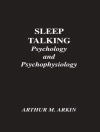‘This new edition provides the reader with the latest developments
in clinical psychology. An excellent text for introducing and
motivating students to become well-informed consumers of clinical
psychology information. Every chapter provides valuable information
for mental health students entering the profession.’
– Gerardo D. Canul, Ph D
Clinical Psychologist and Lecturer, University of California,
Irvine
Visiting Faculty, Graduate School of Psychology and Education,
Pepperdine University
UP-TO-DATE INFORMATION AND INSIGHT ON BECOMING A CLINICAL
PSYCHOLOGIST
Contemporary Clinical Psychology, Second Edition presents a
broad-spectrum overview of clinical psychology. Featuring a
detailed review of the history, scientific foundations, and
theoretical orientation of the field as it highlights the
activities, roles, and responsibilities of today’s clinical
psychologist, this realistic and practical ‘view from the inside’
provides:
* Insights into prevention, ethics, evidence-based treatments,
confidentiality laws and regulations including HIPAA, and countless
other current issues
* Case studies detailing the theoretical conceptualization,
assessment, and treatment of clients, along with discussions of
testing, therapy, consultation, and ethics
* Chapter-ending ‘Big Picture’ synopses and lists of key points and
terms to ensure understanding of the material covered, as well as a
unique ‘Real Students, Real Questions’ section, featuring actual
questions asked by clinical psychology students
* Firsthand input from a diverse cross section of professionals
about embarking on a career in clinical psychology
* Current and future trends, plus a step-by-step ‘road map’ that
covers all aspects of becoming a clinical psychologist
Utilizing an integrative biopsychosocial approach throughout, this
thoroughly revised text reflects a contemporary perspective of
clinical psychology. Author Thomas Plante, a practicing clinician
as well as college professor, draws on his own experience working
with clients as well as his work as a mental health director and
consultant to illustrate the real world of clinical psychology and
provide an accurate picture of how science and practice function
together in the day-to-day practice of psychology.
From general knowledge and information to specific topics,
including modes of research and areas of specialization,
Contemporary Clinical Psychology, Second Edition presents a
comprehensive and engaging view of the art and science of clinical
psychology. Designed for upper-level undergraduates and first-year
graduate students, yet invaluable for virtually anyone pursuing a
career in psychology or related fields, it provides a frank and
contemporary portrayal of the dynamic field of clinical psychology
from many different perspectives and in many different settings.
Inhoudsopgave
About the Author.
PART ONE: Foundations and Fundamentals.
Chapter 1: What Is Contemporary Clinical Psychology?
Chapter 2: Foundations and Early History of Clinical
Psychology.
Chapter 3: Recent History of Clinical Psychology.
Chapter 4: Research: Design and Outcome.
Chapter 5: The Major Theoretical Models: Paving the Way toward
Integration.
Chapter 6: Integrative and Biopsychosocial Approaches in
Contemporary Clinical Psychology.
PART TWO: Roles and Responsibilities.
Chapter 7: Contemporary Psychological Assessment I: Interviewing
and Observing Behavior.
Chapter 8: Contemporary Psychological Assessment II: Cognitive
and Personality Assessment.
Chapter 9: Psychotherapeutic Interventions.
Chapter 10: Ten Essential Questions about Psychotherapy.
Chapter 11: Areas of Specialization.
Chapter 12: Consultative, Teaching, and Administrative
Roles.
Chapter 13: Ethical Standards.
PART THREE: Where Is Clinical Psychology Going and Should I Go
with It?
Chapter 14: Current and Future Trends and Challenges.
Chapter 15: Becoming a Clinical Psychologist: A Road Map.
Glossary.
Appendix: Ethical Principles of Psychologists and Code of
Conduct 2002.
References.
Photo Credits.
Author Index.
Subject Index.
Over de auteur
THOMAS G. PLANTE, Ph D, is Professor of Psychology at Santa Clara University and a licensed psychologist with a private practice. In addition, he is an adjunct clinical associate professor of psychiatry and behavioral sciences at Stanford University.












